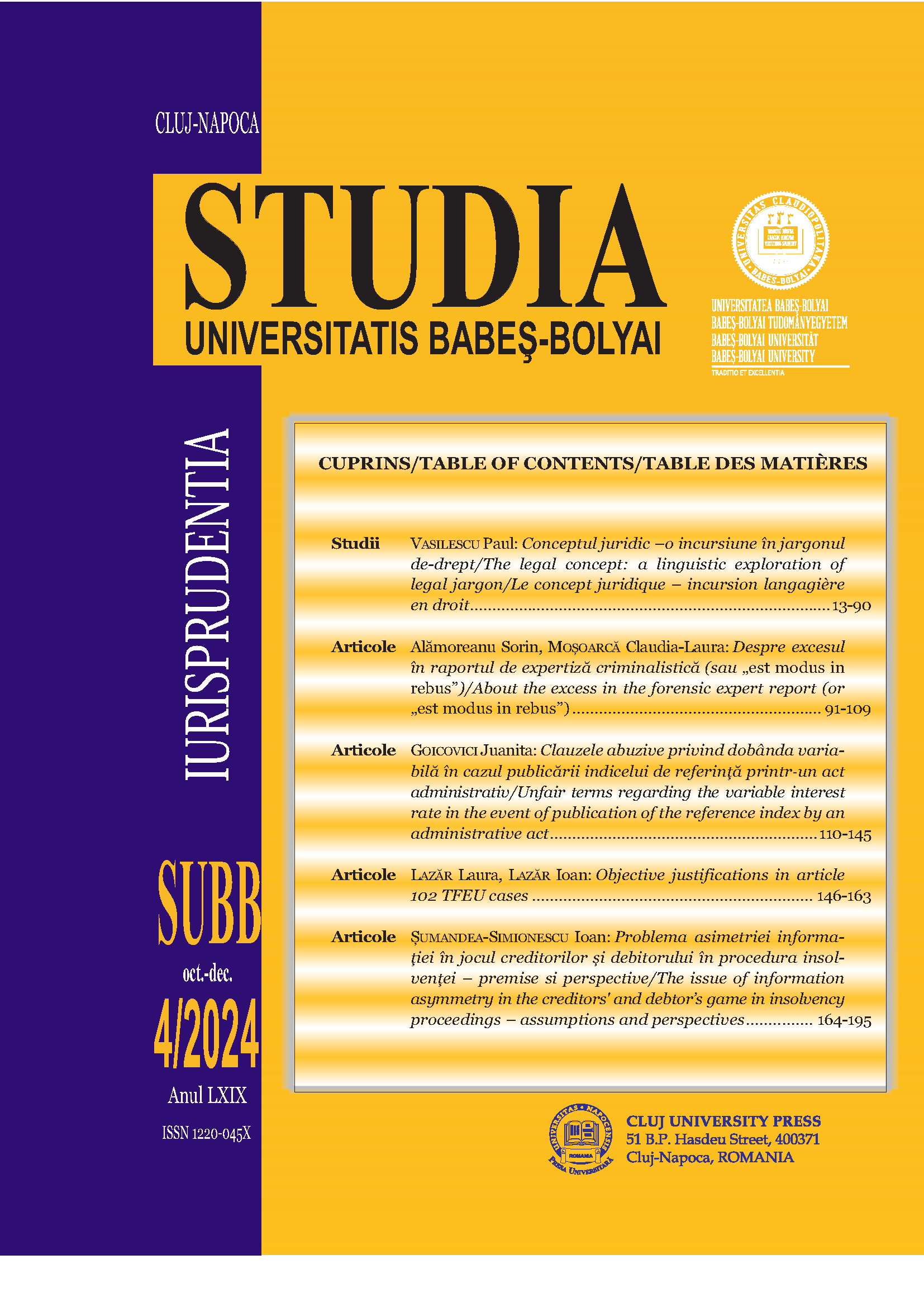OBJECTIVE JUSTIFICATIONS IN ARTICLE 102 TFEU CASES
OBJECTIVE JUSTIFICATIONS IN ARTICLE 102 TFEU CASES
Author(s): Laura Lazăr, Ioan LazărSubject(s): Law, Constitution, Jurisprudence, EU-Legislation, Court case
Published by: Studia Universitatis Babes-Bolyai
Keywords: Article 102 TFEU; abuse of dominance; objective justification; efficiencies; economic approach; consumer welfare; objective necessity;
Summary/Abstract: Objective justifications in EU competition law refer to legal defences invoked by undertakings to justify behaviour that would otherwise be considered anticompetitive under EU competition rules. In the context of the provisions of art. 102 TFEU, these justifications provide exceptions to the general prohibition of abuse of dominance, permitting companies to engage in activities deemed necessary to achieve legitimate business objectives or serve the public interest. Objective justifications are pivotal in ensuring fair competition within the European Single Market, particularly under Articles 101 and 102 of the Treaty on the Functioning of the European Union (TFEU). While Article 101 TFEU contains an exemption clause, the concept of objective justification in the context of Article 102 TFEU has been developed by the Courts.The entry explores the significance, application, and limitations of objective justifications within the framework of Article 102 TFEU, focusing on key defences, such as: efficiency gains, objective necessity, public interest, legitimate business behaviour.The assessment of objective justifications involves a case-by-case analysis, considering factors such as the conduct's effects on competition, consumer welfare and the fulfilment of a proportionality test. Objective justifications play a crucial role in balancing the enforcement of Article 102 TFEU with the need to allow dominant firms to engage in legitimate business activities. By providing a framework for defending certain conduct, objective justifications ensure that the application of EU competition law remains fair and focused on protecting competition rather than punishing dominance.
Journal: Studia Universitatis Babes Bolyai - Iurisprudentia
- Issue Year: 69/2024
- Issue No: 4
- Page Range: 146-163
- Page Count: 18
- Language: English

